Thank you so much everyone who has donated to Action Guinea Bissau! We really appreciate it and would like to tell you what we’ve done with the money!

After lots of discussions, planning and form-filling, we finally got our Charity Commission number in June, and our bank account in November. Linda trained all summer and managed to run a half marathon with Michelle, and finally we had funds and could start. Michelle supplemented the fund-raising with several lockdown charity dinners, where she cooked for 5 friends at a time, and they donated whatever they wanted. And Matt made the decision to close his physical office due to lockdown and sell his desk-tops to raise more funds.
We wanted to start by helping with all 3 types of needs: urgent, short-term and long-term. The first thing was to send money for big sacks of rice to families that were struggling in Catio and Safim, where our 2 partners, Bacar and Ali live. Coronavirus has doubled the price of transport and food, as buses are only allowed to take half the number of people, so this was very welcome.
A huge short-term aim was to repair some of the toilets and wells in Catio. Bacar did some research and found 5 families who needed help most: Quintino Nangomde, Maimuna Djalo, Adama Awa Djalo, Tcherno Ba, Binta Embalo. Bacar then worked with the builders for a week, dismantling the old collapsing structures made of corrugated iron and branches, and constructing 4 brand new toilets and a well, all stamped with Action Guinea Bissau and their number, hopefully the first of many.
The longer-term aim was to set up 5 small microcredit businesses to enable women to earn their own money, be more independent, and pay for their children’s education and health. Ali set up these 5 loans, with women in Safim and K3, and will be reporting regularly on how they are going. We lent them £200 each, and they all agreed to start re-paying £20 at the end of each month from January 2021, for 10 months.
One, Aissatu Djalo, used her loan to buy material and clothes in the local town, Farim, to sell in the village of K3. Another bought wild palm oil, a sustainably, and locally produced delicacy used for both cooking and as body oil. Candidjato Djalo expanded her sandwich business in Safim, and Suncar Balde bought motorbike fuel and set up a roadside stall to sell this together with doughnuts.
The fifth microcredit project took more time to plan and set up and looks the most impressive of all – a small bakery. The builders first had to make the bricks out of sand and salt, and leave them to dry for a couple of weeks in the hot (35 degree) sun. Then they built the bakery. This should be ready to start working at the end of January 2021, with several local women using it to make and sell bread.

Another big project was to build fences and a well around an area of land belonging to the solidarity cooperative that Ali is a member of. They had planted crops the previous year, but these were all eaten by free-roaming cattle, so strong fences were vital. Ali and others from the cooperative went to visit the land, in Mato de Cao outside Bissau, several times to agree on plans, and finally, in December 2020, the fence and well were complete, allowing ploughing and planting to start in January 2021.
We wanted to start a Christmas fundraiser, and agreed that donating money to plant trees in Guinea Bissau would help on several levels: provide fruit and shade for families in the capital, Bissau, and contribute (very slightly admittedly!) to climate change and soil improvement, and increase the value of the land. We decided to buy 2 used tyres for each small tree, to protect them from being eaten by the many goats that roam the streets, and we worked with Ali and his COTEDAE environmental group to identify families, buy a selection of trees (jackfruit, palm, paaya, guava, orange, avocado, lemon, grapefruit, mango and coconut palms), then plant and check on them regularly, informing the families how to care for their tree.

Education is yet another important priority, and university courses cost around £480 per year, a huge amount for families earning only around £100 - £200, like teachers in secondary schools. So we decided it was important to help with these fees and we have sponsored Fatumata Balde to study to become a primary school teacher, and Bacar to continue his university course in law.
Agricultural tools are needed for ploughing, digging and planting, most of which is done by women in the fields. So we contributed money to buy tools for women in the villages of Catio and K3.
And finally, Bacar is now researching the next 3 families in Catio who will get their toilet or well repaired.
Michelle has been kept busy setting up and maintaining our website, and working on social media plans and vision posts. Have a look at our stories and further information on our Instagram account!
Plans for 2021 include working to support and improve secondary schools, especially the rubbish management and toilets, organising volunteer days to clear plastic from the beach and sea, supporting women in agriculture with more tools and seeds, and continuing with more microcredit projects. And we plan to raise funds through a variety of 100k walks, marathons, charity parties, business sponsorship and other ideas. We also hope to visit Guinea Bissau again in April, to report back from all our projects and research further needs, but need to wait to see if travel will be possible then!
In the meantime, our friends Ali and Bacar are reporting back, often on a daily basis, sending photos, updating us on the progress and discussing our next steps. It’s great to be working with such dedicated partners, who really give us an insight into life and daily difficulties in Guinea Bissau!




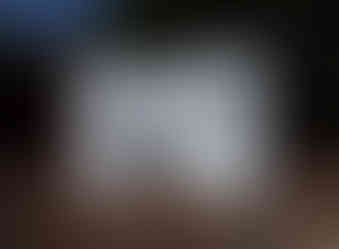


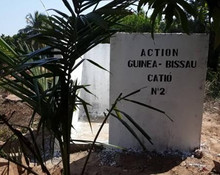



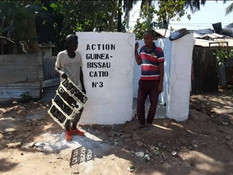
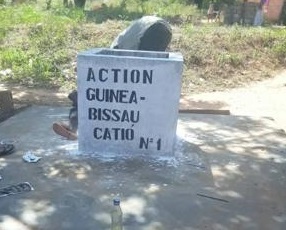







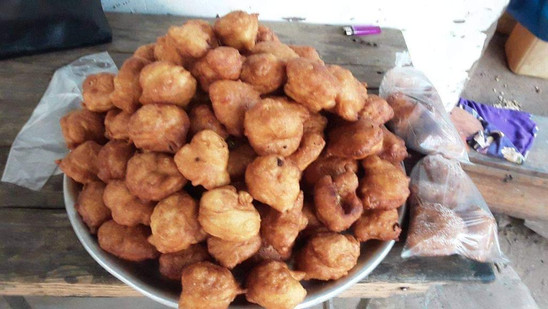

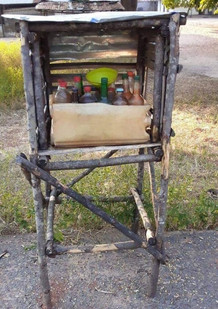




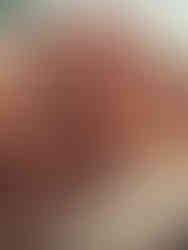












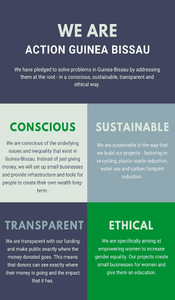


Comments